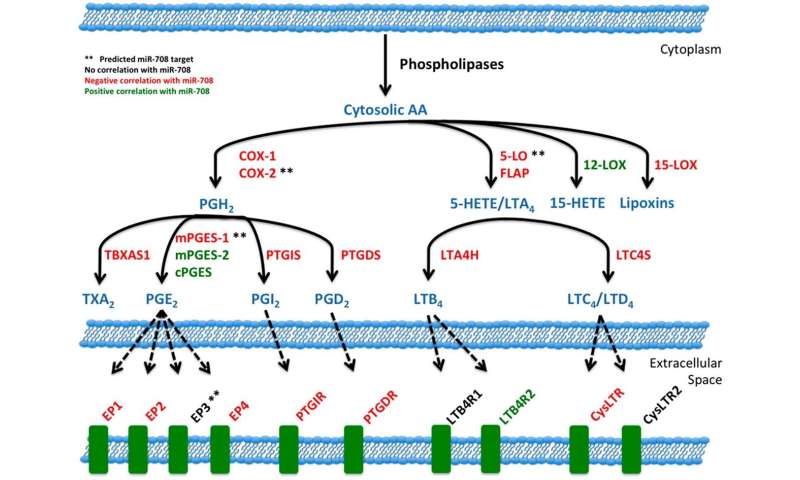
In a study reported in Oncotarget, researchers have shown that high miR-708 expression is associated with survival rates in lung squamous cell carcinoma patients. miR-708 also represses PGE2 production by suppressing both COX-2 and mPGES-1 expression in lung cancer cells.
Moreover, miR-708 decreases proliferation, survival and migration of lung cancer cells, which can be partially attributed to miR-708’s inhibition of PGE2 signaling.
Lastly, they identified novel miR-708 predicted targets and possible regulators of miR-708 expression in lung cancer. Collectively, these data demonstrate that dysregulated miR-708 expression contributes to exacerbated PGE2 production, leading to an enhanced pro-tumorigenic phenotype in lung cancer cells.
Dr. Carol S. Lutz at Rutgers Biomedical & Health Sciences in Newark, New Jersey, said, “Lung cancer is the most common cancer, with more than 2.09 million lung cancer cases worldwide in 2018.” More importantly, lung cancer is the deadliest cancer in the world, with more than 1.79 million lung cancer-related deaths in 2018.
Lung cancer is a collection of several distinct subtypes, with non-small-cell lung cancer accounting for 85% of all lung tumors. miR-708 also indirectly regulates the expression of genes involved in PI3K signaling, cell cycle progression, epithelial-mesenchymal transition and cancer cell stemness.
In this study, the authors aimed to decipher novel miR-708 targets and resolve the controversy regarding whether miR-708 is an oncogenic or tumor-suppressive mi RNA in lung cancer.
The Lutz research team concluded that collectively, their findings suggest further study of miR-708 in lung cancer. The data paired with previous studies highlights a potential value for miR-708 as a diagnostic in differentiating lung tumors, as well as a potential therapeutic intervention, particularly in lung squamous cell carcinomas.
Source: Read Full Article
